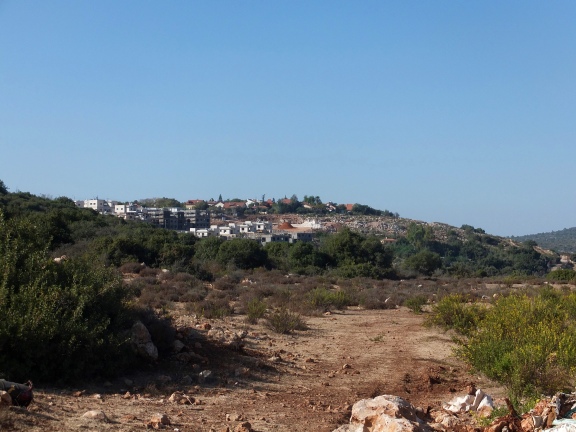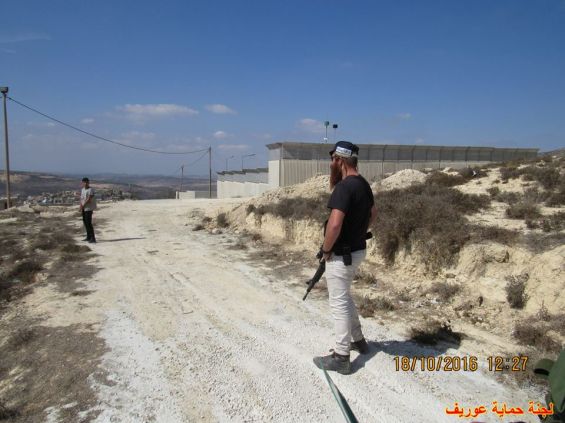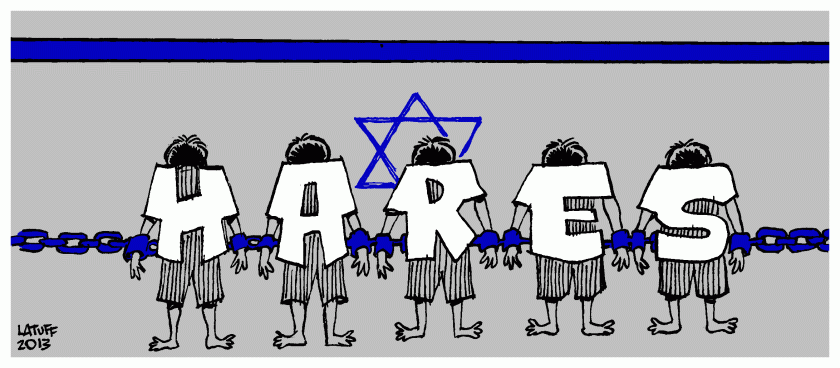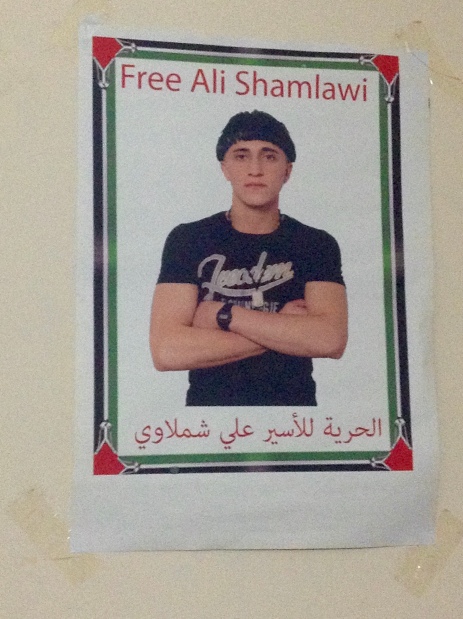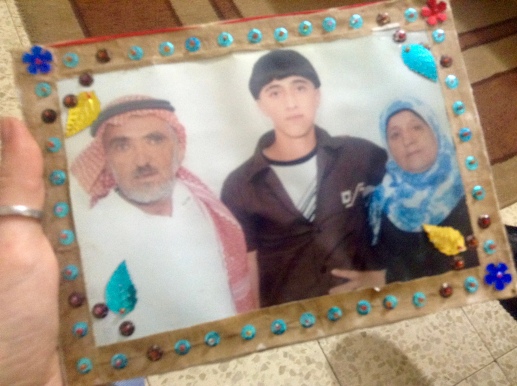Last Thursday we joined our friend and some other Palestinian families on a coach trip to 48. 48 refers to the 1948 occupied lands, also known as Israel.
Palestinians do not have the right to visit 48 and so they had to apply for a permit a few weeks ago to be able to visit their own country. The permit was only valid from 8am to 10pm. As a foreigner, I didn’t need a permit.
We crossed into 48 via the Qalqilya checkpoint. All of the Palestinians had to get off the coach with their bags and walk through the checkpoint, while internationals were allowed to remain on the coach. Armed Occupation Forces came onto the coach to check our passports and made one of our group delete videos that she had just taken of the checkpoint from her camera. When we got to the other side to pick up the Palestinians, many of them were shaken from the experience of being frisked, shouted at and told to stop smiling by Occupation Forces.
It felt so wrong to me that Palestinians should have to go through such a laborious procedure to visit their own country, while I, a foreigner, didn’t face the same treatment.
A short while later, our friend told us it was time to ‘turn the sad to happy’ and she asked the driver to put on some music and everyone began clapping, dancing and singing on the coach.
We then arrived at our first destination, Olga, where we sat on the grass together to enjoy a delicious Palestinian picnic before walking down to the beach and dipping our toes in the sea.
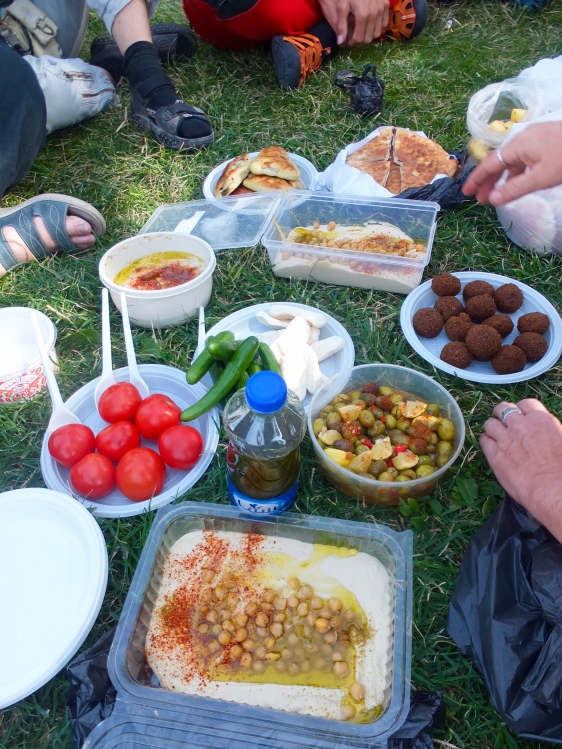


The beach was wonderful, and many of the Palestinians were very excited to see it for the first time or the first time in a while. Again I felt a pang of sadness here at the fact that so many people are denied the right to come here. Although it is so close in distance, many Palestinians have never been to the sea.

Our next destination was Haifa. Unfortunately this city also felt tainted. I was amazed at how magnificent the city was, how luscious and green it seemed compared to the West Bank. Our friend became very pensive and later divulged that she loved this city, for her it was the best place in Palestine. Her late father used to work her, and her brother was born here.

Finally we stopped in Akka, a stunning coastal town where we ate some more food, visited a mosque and roamed the winding streets of the souk before arriving at the port to watch the sunset.

It was nice to spend a day in an area that doesn’t have any army presence, watchtowers or apartheid walls but the occupation was still very present in the Palestinians’ longing gazes. I got talking to many people on the bus and I met one girl in particular who is the same age as me. I asked her if she comes to 48 often, to which she replied that it was her first time. It’s difficult to get a permit and it costs a lot to come here for the day. There was no difference between this girl and myself, yet our nationalities granted us vastly different rights. I felt riddled with guilt at the ease in which I could come and go from these beautiful places, while for so many Palestinians, visiting 48 remains but a dream.


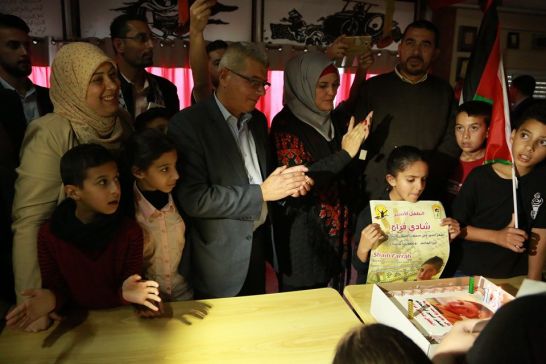
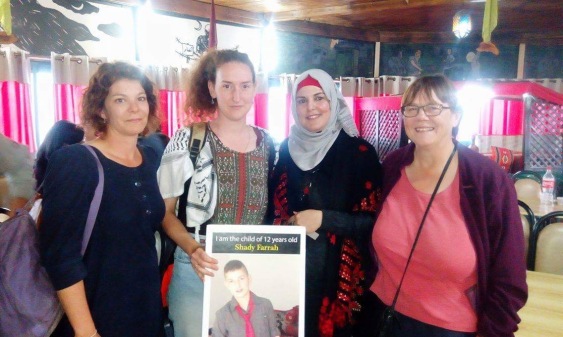 Shadi and his friend Ahmad were arrested at a bus stop in Jerusalem after a group of East Jerusalem settlers called the police to investigate the two boys, on suspicion of being Palestinian. In the ensuing process of arrest, interrogation, and abuse, the Israeli police proclaimed that the two boys had gone to Jerusalem with the intent to stab a soldier, and subsequently charged them both with attempted manslaughter. During the interrogation, the boys were shouted at, beaten and given electric shocks. Shadi still maintains his innocence, but in the Israeli courts, no evidence is needed to convict a Palestinian.
Shadi and his friend Ahmad were arrested at a bus stop in Jerusalem after a group of East Jerusalem settlers called the police to investigate the two boys, on suspicion of being Palestinian. In the ensuing process of arrest, interrogation, and abuse, the Israeli police proclaimed that the two boys had gone to Jerusalem with the intent to stab a soldier, and subsequently charged them both with attempted manslaughter. During the interrogation, the boys were shouted at, beaten and given electric shocks. Shadi still maintains his innocence, but in the Israeli courts, no evidence is needed to convict a Palestinian.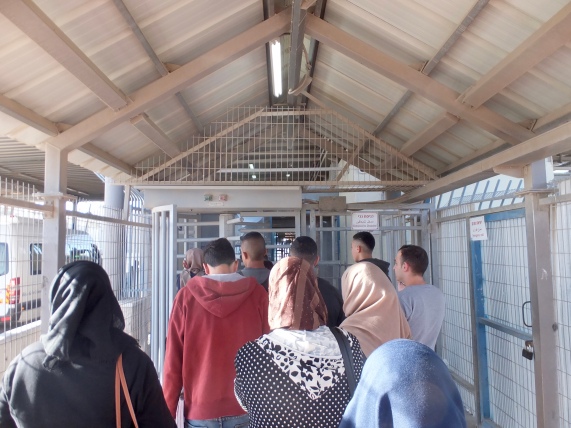
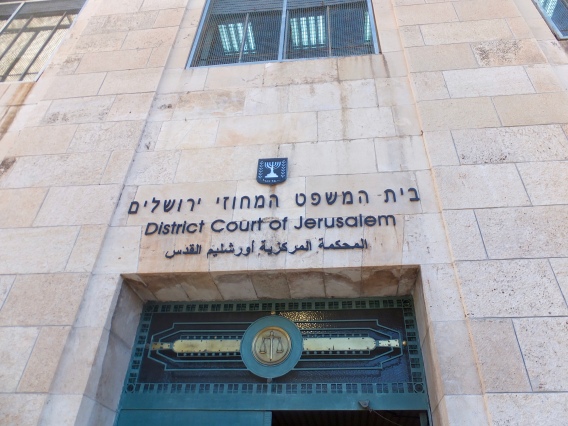
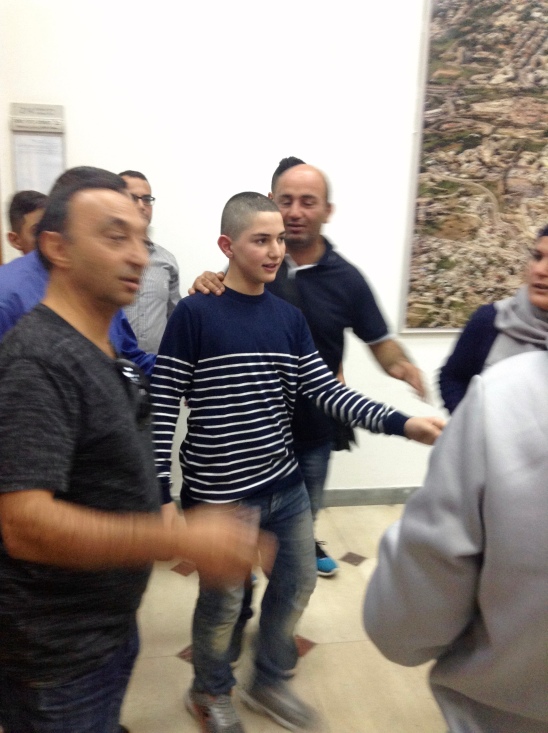 Once inside the building, a security guard informed us that we internationals would not be able to take any recording devices into the courtroom. Shortly afterwards he clarified that we would not be allowed in to the courtroom as Shadi is a minor. It’s convenient how they remember he is a minor when it suits them, but not when they are holding him in a detention centre indefinitely for no crime committed and no evidence.
Once inside the building, a security guard informed us that we internationals would not be able to take any recording devices into the courtroom. Shortly afterwards he clarified that we would not be allowed in to the courtroom as Shadi is a minor. It’s convenient how they remember he is a minor when it suits them, but not when they are holding him in a detention centre indefinitely for no crime committed and no evidence.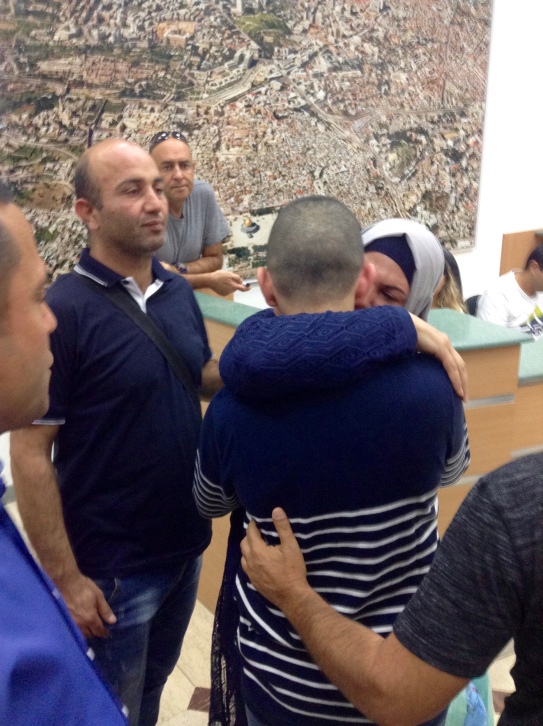 Shadi’s mother expressed her dissatisfaction with the Palestinian Authority’s approach to child prisoners, saying that there was more international official attention to Shadi’s case than official attention from PA institutions.
Shadi’s mother expressed her dissatisfaction with the Palestinian Authority’s approach to child prisoners, saying that there was more international official attention to Shadi’s case than official attention from PA institutions.


